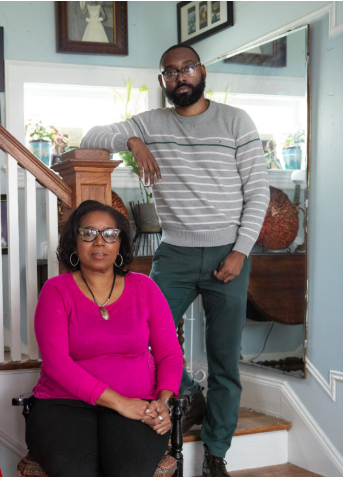
Photograph by Andrea Fremiotti, Atlanta Magazine
The law in Georgia and in most other states is pretty clear that, absent express intent to the contrary, children born out of wedlock have the same inheritance rights as any biological child. But what if the parent was wealthy and wanted to avoid paying estate and other transfer taxes? In this scenario, the wealthy parent – like President Trump’s father – often transfers some or all of his or her assets prior to death through trusts, limited partnerships and other wealth transfer transactions, frequently using heavily discounted values to minimize or eliminate altogether liability for transfer taxes. Does an omitted biological child still have any inheritance rights or other claim to a fair share of these already-transferred assets? This is a novel issue that neither Georgia nor most other states have addressed.
Gaslowitz Frankel represents the biological daughter of Atlanta icon Herman J. Russell, and Georgia’s appellate courts will now have the opportunity to answer this question.
Herman Russell’s legacy still ripples through Atlanta, even after his death in 2014. A strong financer of the Civil Rights movement in the 1960s, his connections to politicians and activists like former Ambassador Andrew Young and Dr. Martin Luther King Jr., Russell helped shape modern day Atlanta.
When Russell died in 2014, he was survived by his second wife and three children from his first wife. But, unbeknownst to them, Russell also was survived by Gaslowitz Frankel’s client, Joycelyn Darby Alston. Ms. Alston was born in 1958. It was not until after Russell’s death, however, that DNA test results proved that Ms. Alston was Russell’s eldest biological child.
Ms. Alston and her siblings are engaged in a lawsuit in the Probate Court of Fulton County, Georgia to determine whether her father intended to disinherit her and leave her nothing under his will. That lawsuit is still pending.
But Ms. Alston and her siblings also are engaged in another lawsuit initiated in the Superior Court of Fulton County, Georgia, in which Ms. Alston asked the court to apply the rules of equity to provide her with a fair share of her father’s estate that, primarily for estate tax avoidance purposes, Russell transferred prior to his death to trusts and limited partnerships for the benefit of his biological children and their descendants.
On January 9, 2019, Fulton County Superior Court Judge Eric Dunaway dismissed Alston’s lawsuit, finding that equity would not intervene to provide Ms. Alston with a fair share of her father’s estate. An appeal has been filed, and this case is headed to the Georgia Court of Appeals.
“I’m disappointed but not surprised, that the judge took the safe way out,” Craig Frankel of Gaslowitz Frankel said. “This is a new area of law and [Judge Dunaway] is going to let the appellate courts decide. It’d be a shame if the Georgia courts hold that the biological child of a man who is wealthy has no rights simply because the father had enough money to do estate planning outside of probate.”
Read more about Ms. Alston’s claims in a recent article in Atlanta Magazine.
We will keep you abreast of changes in this potentially landmark case.





